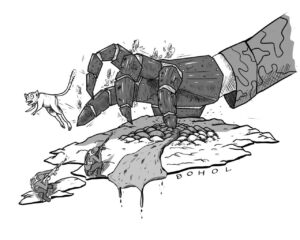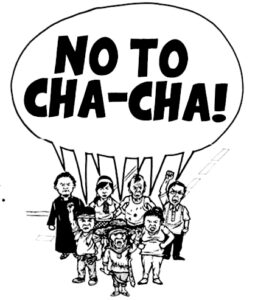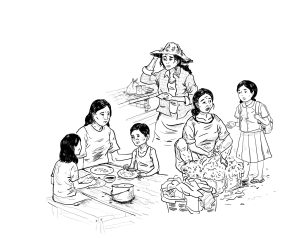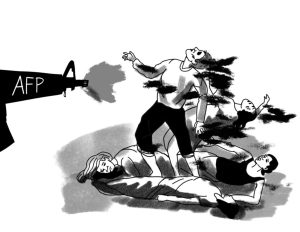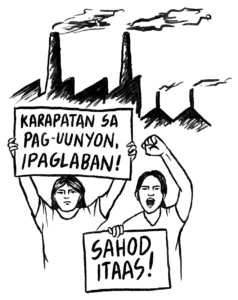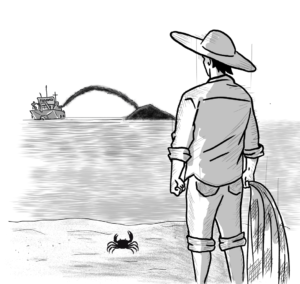Fight negligence and corruption of the US-Marcos regime amid El Niño

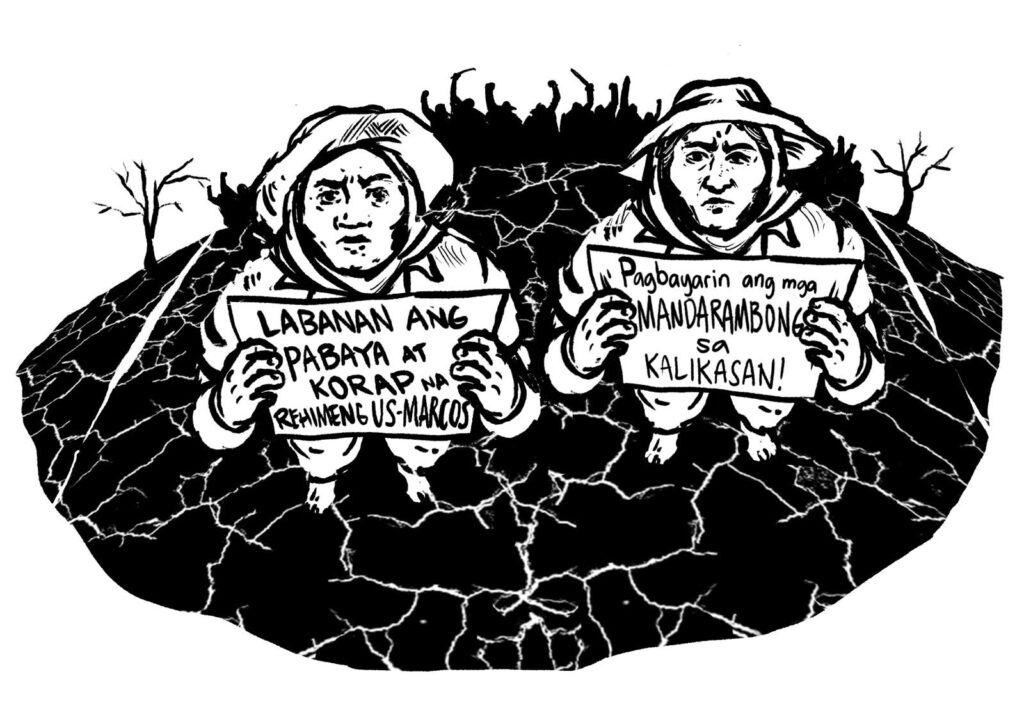
Much of the country is now experiencing a drought caused by the El Niño climate phenomenon. This began in the middle of last year, and is expected to last until May or June this year. The drought is expected to affect up to 65 provinces and bring extensive damage to the livelihoods of the rural masses.
Reports by the end of February show crop losses of up to ₱941.7 million in 15,000 hectares of damaged agricultural land. Studies estimate that up to 250,000 hectares of agricultural land will be damaged. Hundreds of thousands of farmers are at risk of falling deeper into debt to merchant-usurers, and suffering intense hardships and hunger.
The drought will be most devastating for landless farmers, who have no money to invest, depend on rain and lack access to irrigation. Hundreds of thousands of farm-workers will lose their jobs or source of income. The drought is causing fires in mountains, endangering the lives and livelihood of the masses of minorities.
The effects of El Niño’s drought are exacerbated by environmental destruction, especially the loss of forests due to long periods of logging, mining and construction of dams and other infrastructure that destroy watershed and water sources. Large foreign companies and the comprador bourgeoisie are the main perpetrators. Despite the intense damage they cause, the Marcos regime continues to favor the aggressive entry of these companies into the countryside.
For more than a year, the effects of El Niño have been expected in the Philippines, yet the Marcos regime made no concrete plans to help peasants whose livelihoods will be devastated. Despite the long-anticipated effects, reactionary government’s agencies did not provide scientific advice, financial subsidy or alternative crops, and simply left the peasant masses to suffer and go bankrupt as their crops withered in the drought.
Worse, Marcos is now using El Niño to provide huge funds to pocket kickbacks from infrastructure projects such as “solar-powered” irrigation which are actually long-delayed given that these are being built amid a drought when many places are already without water. Long-delayed as well, and done merely for media projection, are cloud seeding plans, tractor distribution, and small insurance payment for damaged crops.
Despite an expected drop in production due to the drought, especially rice, the US-Marcos regime has done nothing to ensure the supply of food except to further open the country’s door to import rice, as well as onions, garlic, and other agricultural products. Rice prices rose further this February and is expected to continue increasing.
In the face of the intense impact of the El Niño drought, the Party and the revolutionary forces must strive to unite and mobilize the peasant masses to defend their well-being, livelihood and economic and social rights. Peasant organizations must be built and strengthened to combine their strength to fight for measures to provide immediate relief during El Niño.
The peasant masses should be mobilized in their numbers to demand necessary steps for immediate alleviation, including distribution of subsidies or emergency funding, suspension or cancellation of debts, non-payment of land rent, and implementation of urgent solutions to solve the water problem. They must act together to fight mining operations, plantations and other activities that damage the environment.
The peasant masses must also be united to revive their spirit of cooperation especially in the face of the drought. Through their organizations, widespread mobilizations can be planned to collectively build or repair irrigation systems in their respective areas, in order to share (rather than fight over) water resources for their fields.
The peasant masses should collectively hold the US-Marcos regime accountable for its negligence, corruption and burdensome policies that worsen their conditions. All these anger the peasant masses and drive them to the path of protest and resistance.
Amid the drought, units of the New People’s Army have been ordered by the Party to actively help the peasant masses cope with the impending disaster. In addition to helping build the peasant organizations, NPA units are directly assisting in production, digging wells, building irrigation systems, and other initiatives to address the well-being of the peasant masses.
The peasant masses are increasingly outraged that amid the intense drought, tens of thousands of AFP fascist troops are relentlessly launching extensive repression operations and armed offensives to crush the people’s resistance. Amid their misery, hundreds of millions of pesos are being squandered by the AFP with jet fighters and helicopters dropping bombs and firing shells in the fields and mountains.
AFP battalions are now launching all-out offensives nationwide, in accordance with the US-Marcos regime’s order to defeat all guerrilla fronts by the end of March. These do not bring anything to the peasant masses but greater sufferings.
The neglect, corruption, oppressive policies, and fascist terrorism of the US-Marcos regime all serve as spark for the tinder of the people’s indignation in the vast countryside. The prevailing situation is fertile ground for generating widespread protests by the impoverished masses, and further strengthening the armed resistance of the NPA.

